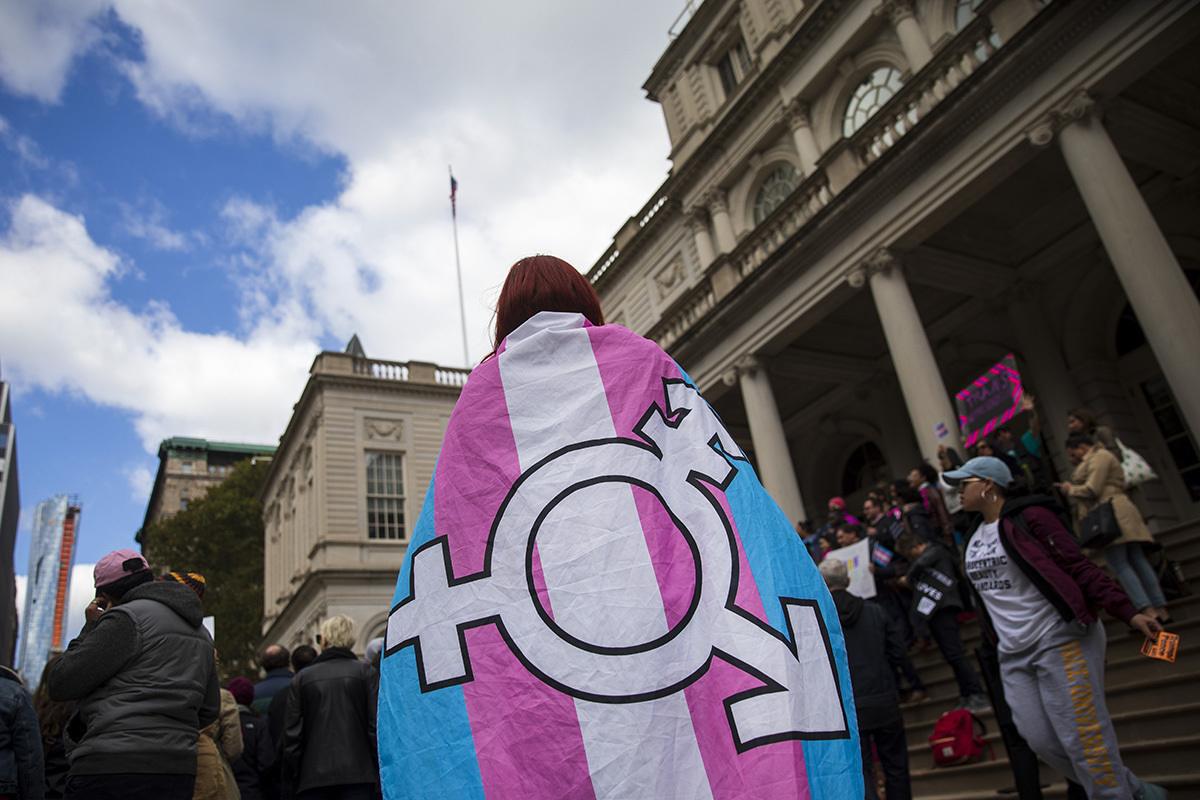
Nearly half of trans-identifying individuals reported experiencing “serious psychological distress” within the last 30 days according to a study.
The U.S. Transgender Survey from the National Center for Transgender Equality assessed 92,329 people who identify as trans or nonbinary from Oct. 19 through Dec. 5, 2022. The survey included more than 84,000 people aged 18 and older and was also open to individuals aged 16 and older.
The study claims that 94% of participants who lived under a different gender identity reported they were “a lot more satisfied” (79%) or “a little more satisfied” (15%) with their life. The study does not appear to have included individuals who detransitioned in its analysis, however.
Three percent of respondents reported that identifying as the opposite-sex made them “neither more nor less satisfied” with their life, while 1% reported they were “a little less satisfied.” Another 2% of participants stated that they were “a lot less satisfied” with their life.
“Nearly all respondents (98%) who were taking cross-sex hormones reported that the drugs made them either ‘a lot more satisfied’ (84%) or ‘a little more satisfied’ (14%) with their life,” the study further claimed.
“One percent (1%) reported that [opposite-sex] hormones made them ‘neither more nor less satisfied’ with their life, and less than 1% said they were ‘a little less satisfied’ or ‘a lot less satisfied’ with their lives after receiving hormones.”
The study also purported that 97% of respondents who underwent a sex-change operation said that they were “a lot more satisfied” (88%) or “a little more satisfied” (9%) with their life.
“One percent (1%) reported that surgery made them ‘neither more nor less satisfied’ with their life, less than 1% were ‘a little less satisfied,’ and 1% were ‘a lot less satisfied’ with their life,” the report claimed.
However, the study’s data also show that 44% of respondents reported they had experienced what the report described as “serious psychological distress” within the last 30 days. Thirty percent of participants said they had experienced homelessness in their lifetime, and more than one-third of respondents were experiencing poverty.
According to a report released by the American College of Pediatricians titled “Mental Health in Adolescents with Incongruence of Gender Identity and Biological Sex,” allowing minors to undergo such procedures does not improve their mental health.
The Healthy Minds Study found that 78% of college students classified as “gender minorities” showed signs of depression, anxiety, eating disorders, self-injury and suicidality compared to only 45% of respondents who were not “gender minorities.” The study surveyed 65,213 students at 71 college campuses across the U.S. between 2015 and 2017.
“A 2021 comprehensive data review of all 3,754 trans-identified adolescents in U.S. military families over 8.5 years showed that cross-sex hormones led to increased use of [mental] health services and psychiatric medications, and increased suicidal ideation/attempted suicide,” the report stated.
ACP board member Dr. Jane Anderson told The Christian Post in an earlier interview that “the most important thing is to recognize that these adolescents need and benefit from mental health support.”
“There is a high incidence of adolescents who come into this medical care who have previous history of depression or anxiety or autism or other medical or psychological concerns,” she said.
“And those issues have to be dealt with first,” she added. “It’s just crucial that they receive the mental health services and support that they so desperately need.”
Samantha Kamman is a reporter for The Christian Post. She can be reached at: [email protected]. Follow her on Twitter: @Samantha_Kamman



